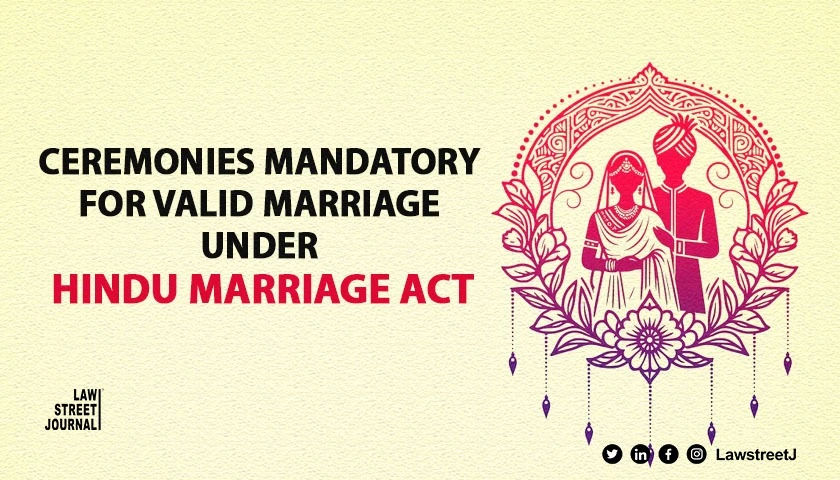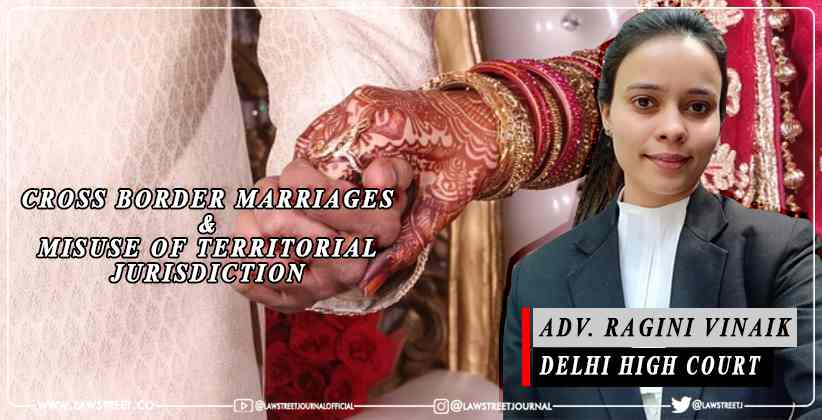NEW DELHI: The Supreme Court has said mere registration of marriage without a proper ceremony would not be valid under the Hindu Marriage Act, which treats it as 'samskara', a sacrament to be followed religiously.
A bench of Justices B V Nagarathna and Augustine George Masih explained Hindu marriage is not an event for song and dance and wining and dining only. There is nothing like a better-half in a marriage here but the spouses are equal halves in a marriage, the court said.
The court also deprecated the practice of young men and women seeking to acquire the status of being a husband and a wife to each other in the absence of a valid marriage ceremony.
It highlighted marriage is sacred under the Hindu Marriage Act for it provides a lifelong, dignity-affirming, equal, consensual and healthy union of two individuals.
"In the absence of there being any such marriage in accordance with Section 7 of the Act, a certificate issued in that regard by any entity is of no legal consequence," the bench said.
The court said any registration of a marriage as per the rules made by the state government would not be evidence of a Hindu marriage.
"In recent years, we have come across several instances where for practical purposes, a man and a woman with the intention of solemnisation of their marriage at a future date seek to register their marriage on the basis of a document," the bench said.
Taking up a transfer petition, the court noted the couple, who worked as commercial pilots, acquired a marriage certificate from Ghaziabad's based Vadik
Jankalyan Samiti (Regd) on July 07, 2021 and used it for registration of marriage under the Uttar Pradesh government rules.
They had then decided to perform the marriage ceremony on a future date in October, 2022.
However, issues arose among them, resulting into filing of multiple cases including dowry harassment and divorce.
"We note that parents of young couples agree for registration of a marriage in order to apply for Visa for emigration to foreign countries where either of the parties may be working in order to save time and pending formalising a marriage ceremony. Such practices have to be deprecated," the bench added.
Underscoring sacredness of the institution of marriage in Indian society, the bench said, a marriage is not an event for song and dance and wining and dining or an occasion to demand and exchange dowry and gifts by undue pressure leading to possible initiation of criminal proceedings.
"A marriage is not a commercial transaction. It is a solemn foundational event celebrated so as to establish a relationship between a man and a woman who acquire the status of a husband and wife for an evolving family in future which is a basic unit of Indian society," the bench said.
The court said marriage is considered to be an event that confers salvation upon the individual especially when the rites and ceremonies are conducted. The customary ceremonies, with all its attendant geographical and cultural variations is said to purify and transform the spiritual being of an individual.
The bench said the Hindu Marriage Act, 1955 solemnly acknowledges both the material and spiritual aspects of this event in the married couples lives. Besides providing a mechanism for registration of marriages in order to confer the status of a married couple and acknowledge rights in personam and rights in rem, a special place is given to rites and ceremonies in the Act.
"The genesis of a sacred process cannot be a trivial affair. The sincere conduct of and participation in the customary rites and ceremonies under Section 7 of the Hindu Marriage Act, 1955 ought to be ensured by all married couples and priests who preside over the ceremony," the court said.
"The promises made to each by the parties to a Hindu marriage and the oath taken by them to remain friends forever lay the foundation for a life-long commitment between the spouses which should be realised by them. If such commitment to each other is adhered to by the couple, then there would be far fewer cases of breakdown of marriages leading to divorce or separation," the bench added.
In the case, the bench quashed three cases filed against each other by the couple as they agreed their marriage was not a valid one.
The court observed that a Hindu marriage is a sacrament and has a sacred character.
It pointed out in the context of saptapadi in a Hindu marriage, according to Rig Veda, after completing the seventh step (saptapadi) the bridegroom says to his bride, With seven steps we have become friends (sakha). May I attain to friendship with thee; may I not be separated from thy friendship.
"A wife is considered to be half of oneself (ardhangini) but to be accepted with an identity of her own and to be a co-equal partner in the marriage. There is nothing like a better-half in a marriage but the spouses are equal halves in a marriage. In Hindu Law, marriage is a sacrament or a samskara. It is the foundation for a new family. With the passage of centuries and the enactment of the Act, monogamy is the only legally approved form of relationship between a husband and a wife. The Act has categorically discarded polyandry and polygamy and all other such types of relationships," the court said.
It also pointed out the intent of the Parliament is also that there should be only one form of marriage having varied rites and customs and rituals. Thus, when the Act came into force on 18.05.1955, it has amended and codified the law relating to marriage among Hindus. The Act encompasses not only Hindus as such but Lingayats, Brahmos, Aryasamajists, Buddhists, Jains and Sikhs also who can enter into a valid Hindu marriage coming within the expansive connotation of the word Hindu.








![Husband Can Also Claim Alimony/Maintenance From Wife: Bombay High Court Orders Woman To Pay Alimony To Ex-Husband [Read Order]](/secure/uploads/2022/04/lj_2823_Divorce.jpg)
![Epilepsy neither incurable nor Psychopathic disorder, Bombay High Court rejects plea for divorce [Read Judgment]](/secure/uploads/2023/09/lj_3867_epilepsy_not_a_ground_for_divorce.jpg)






